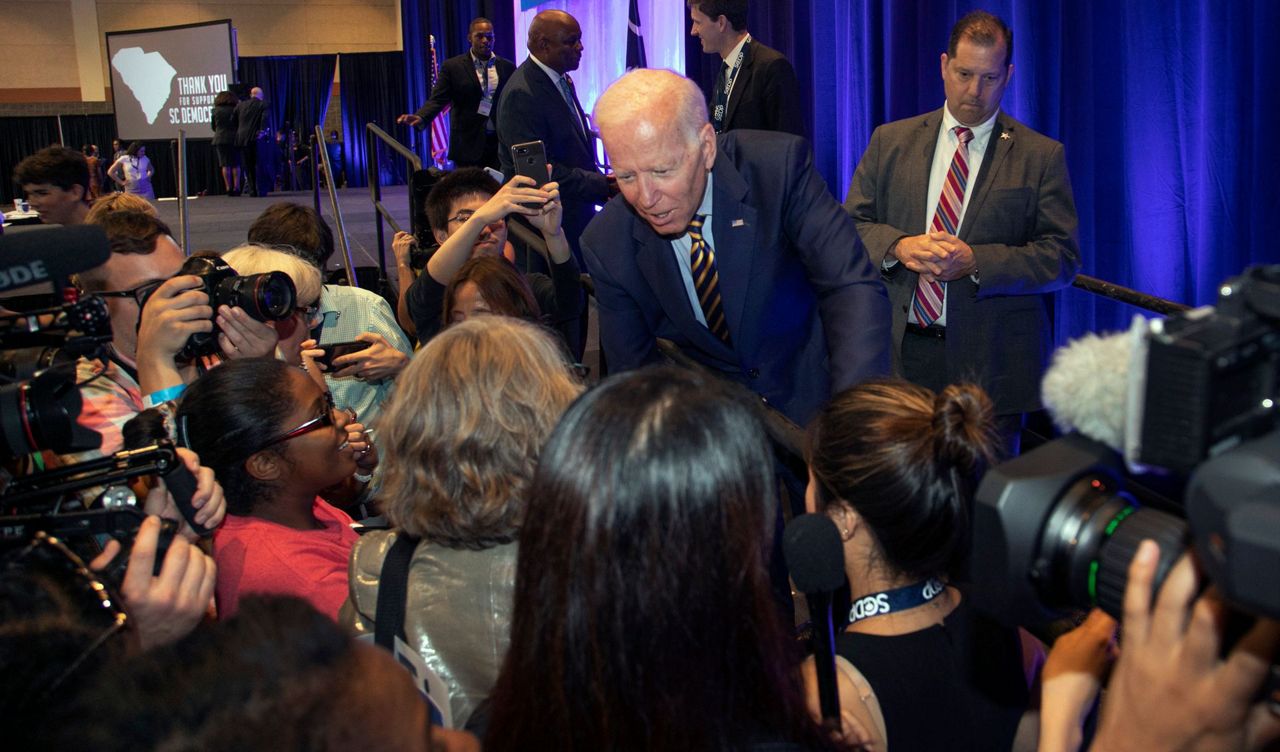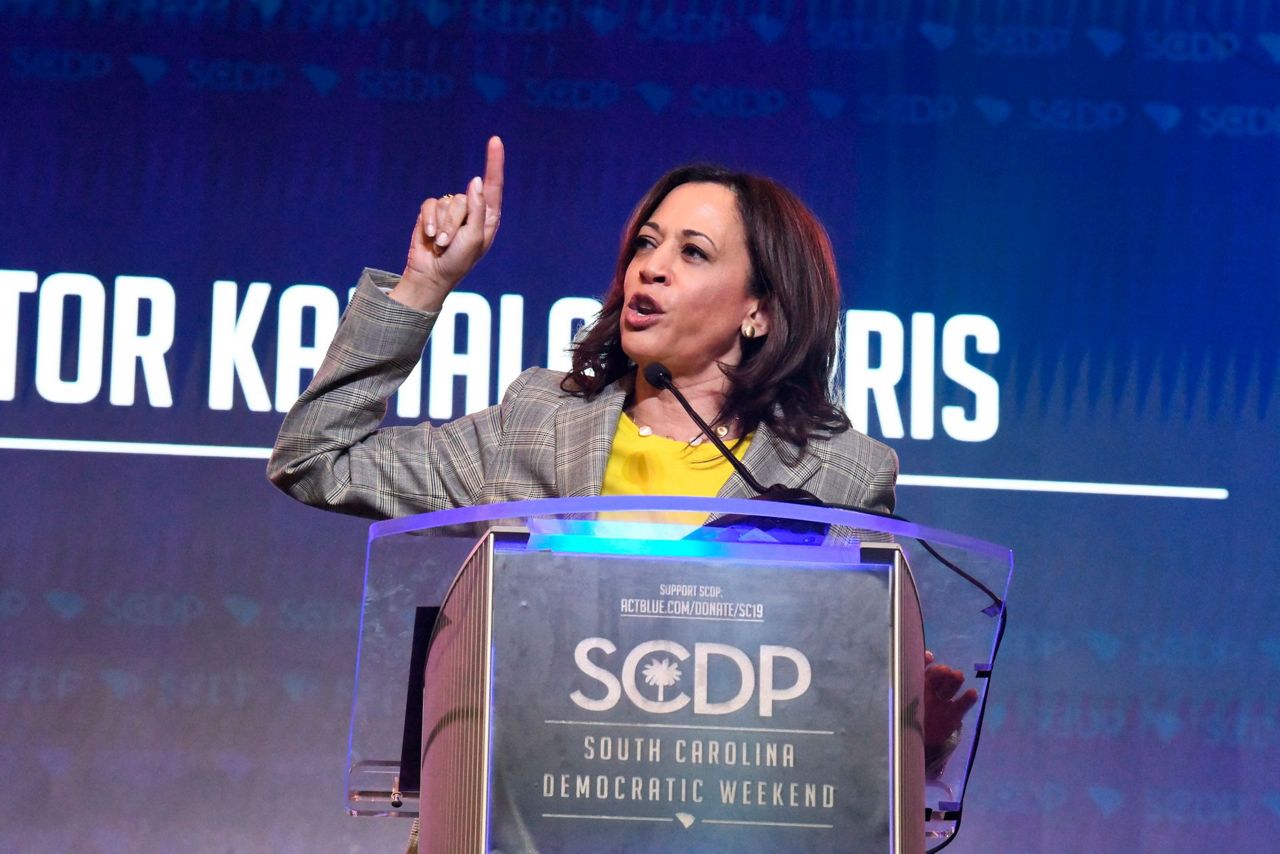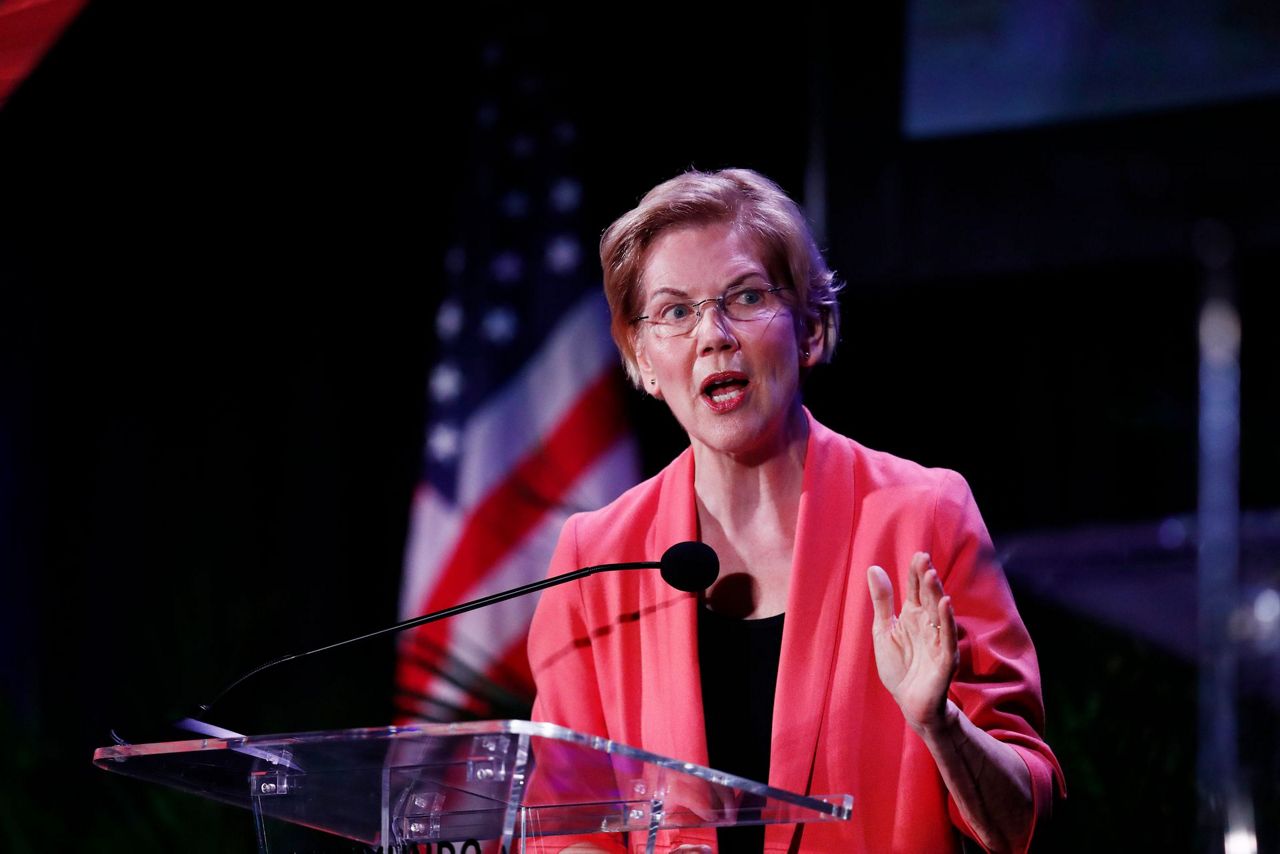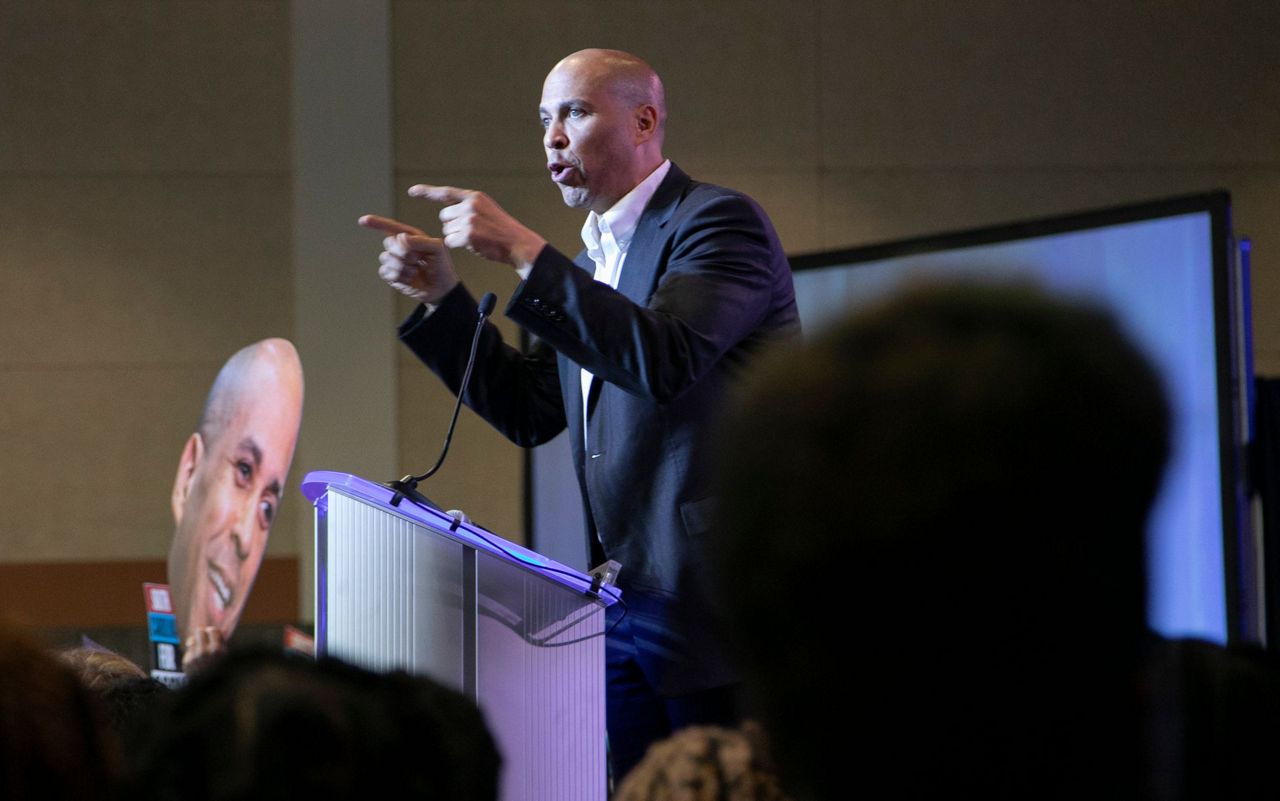COLUMBIA, S.C. (AP) — Twenty-two Democratic presidential candidates descended on South Carolina this weekend along with the brightest of political spotlights trained on the party in the South's first primary state. Here are some takeaways as the primary contest shifts to the first debates this week:
BIDEN STRONG (FOR NOW), DESPITE CLEANUP TOUR
Former Vice President Joe Biden has had a run of bad headlines that can befall a front-runner with a long record and bent toward free-wheeling ineloquence. His latest flaps involved abortion and race, touchstones in Democratic politics. Yet there's little apparent fallout in South Carolina, where the 76-year-old has wide appeal among a primary base historically dominated by older black voters and white moderates.
"People see him as one of us," said former state party Chairwoman Carol Fowler, who remains uncommitted.
A 36-year senator, Biden didn't apologize for recently recalling his dealings with racist "Dixiecrats" when illustrating his argument that Capitol Hill once functioned with comity. Biden said rivals — New Jersey Sen. Cory Booker, who is black, demanded an apology — ignored the full context.
Several undecided black voters agreed with Biden, some saying Democrats should aim concerns over racism at the White House. "I don't think anything Joe Biden said is racist. It's reality," said Lavernetta Gregg, 51, "and even if he tried he couldn't say anything that approaches Donald Trump." Gregg said she's deciding among Biden, Booker and California Sen. Kamala Harris, who has sharply criticized Biden's mention of dead segregationists.
Likewise, Biden defended his record on abortion rights after recently reversing his long-held opposition to federal funding for abortion services, a move that belatedly aligned Biden with the Democratic platform. He sometimes appeared awkward during a Planned Parenthood forum on abortion rights, but pushed back on a moderator's claim that he has a "mixed record" on the issue.
DEBATE TUNEUP
Compressed speaking slots at South Carolina events require the kinds of crisp messages candidates will need during the first debates this week in Miami.
California Sen. Kamala Harris deftly paired biography and attack. Debate viewers may hear the former district attorney and state attorney general talk a lot about President Donald Trump's "rap sheet" and the need for a nominee who can "prosecute the case." The 54-year-old senator may not mention Joe Biden's age (76), but look for her to insist that Democrats "start the next chapter" and not "turn back the clock."
Biden, in turn, previewed his answer: generous mentions of former President Barack Obama (read: "turning back" at least involves a beloved party figure) mixed with rapid-fire policy proposals (perhaps squelching Trump's "Sleepy Joe" insults while narrowing the contrasts with Sen. Elizabeth Warren's policy rich campaign).
Vermont Sen. Bernie Sanders, meanwhile, seems focused on party centrists, piqued at the "Third Way" group that's labeled the democratic socialist an "existential threat" to Democrats. Sanders flouted the campaign rule not to restate opponents' attacks, even when refuting them. He instead embraced the label, calling himself "an existential threat" to corporate titans that skew the economy and political process.
GENERATIONAL DIVIDES
South Carolinians put faces on polling trends that show Joe Biden's lead widening up the age ladder of Democratic voters.
Biden stickers and buttons proliferated on delegates with gray hair, while younger candidates — Beto O'Rourke (47), Cory Booker (50) and Kamala Harris (54) — came with hordes of young supporters. Harris brought a college drum line.
The question is how many young people will vote in a primary that often tilts heavily toward the over-50 crowd;
State Party Chairman Trav Robertson pointed to a surge in Democratic turnout for the 2018 midterm; he said it suggests the 2020 primary will look more like 2008, when the battle between Hillary Clinton and then-Sen. Barack Obama drew 540,000 ballots, than 2016, when Clinton's tussle with Bernie Sanders drew 370,000 ballots.
Last November, Democrats lost statewide general elections here by wide margins, but the gubernatorial nominee got 784,000 votes — about a 52% increase over the 2014 total of 516,000.
Amy Hayes, a former local party chairwoman who remains undecided, said such enthusiasm is Biden's biggest threat. "Biden may have nowhere to go but down," Hayes said.
HAPPY DAYS FOR WARREN
Massachusetts Sen. Elizabeth Warren turned 70 on Saturday, feted with roars wherever she went.
Recent polls show an uptick in her South Carolina support, and Democrats here say her campaign will soon deploy a major ground expansion.
A white progressive icon from the northeast might seem an odd match for South Carolina, especially with Biden, Harris and Booker making serious plays. But Warren supporters say she's methodically building a racially, philosophically mixed coalition.
"She's not playing those identity politics lanes," said Harry Rogers, a 71-year-old retired electrician, who is white. "Sure, she's going to everyone — blacks, LGBT, the frustrated white guys. But it's with the same message: I have a plan, and this is how we can make your life better."
Rogers is backing Warren four years after supporting Vermont Sen. Bernie Sanders.
Also of note: Sanders' spat with the centrists of "Third Way" comes after the group met recently in Charleston, with some members happily noting that Warren, unlike Sanders, is an avowed capitalist. Meanwhile, one of Warren's earliest hires was Richard McDaniel, a party strategist from Georgia who is black, with extensive organizing experience across the South.
WHAT BORDER CRISIS?
Despite a new round of outrage over conditions for migrant children in detention centers at or near the U.S.-Mexico border, Democrats' 2020 candidates rarely delved into the specifics in South Carolina.
Candidates were much more likely to emphasize African-American issues. Related: South Carolina's population is 27 percent black compared to 5.8 percent Hispanic.
So there were many mentions of Voting Rights Act provisions the Supreme Court struck down in 2013; promises for criminal justice overhauls to address the mass incarceration of black men; and several recollections of candidate visits to Denmark, South Carolina, a town whose contaminated water system draws comparisons to Flint, Michigan.
The dynamic offers a key lesson of presidential politics: Nominating fights are simultaneously a nationalized contest and a series of battles tailored to individual states.
___
Follow Bill Barrow on Twitter at https://twitter.com/BillBarrowAP .
Copyright 2019 The Associated Press. All rights reserved. This material may not be published, broadcast, rewritten or redistributed.






